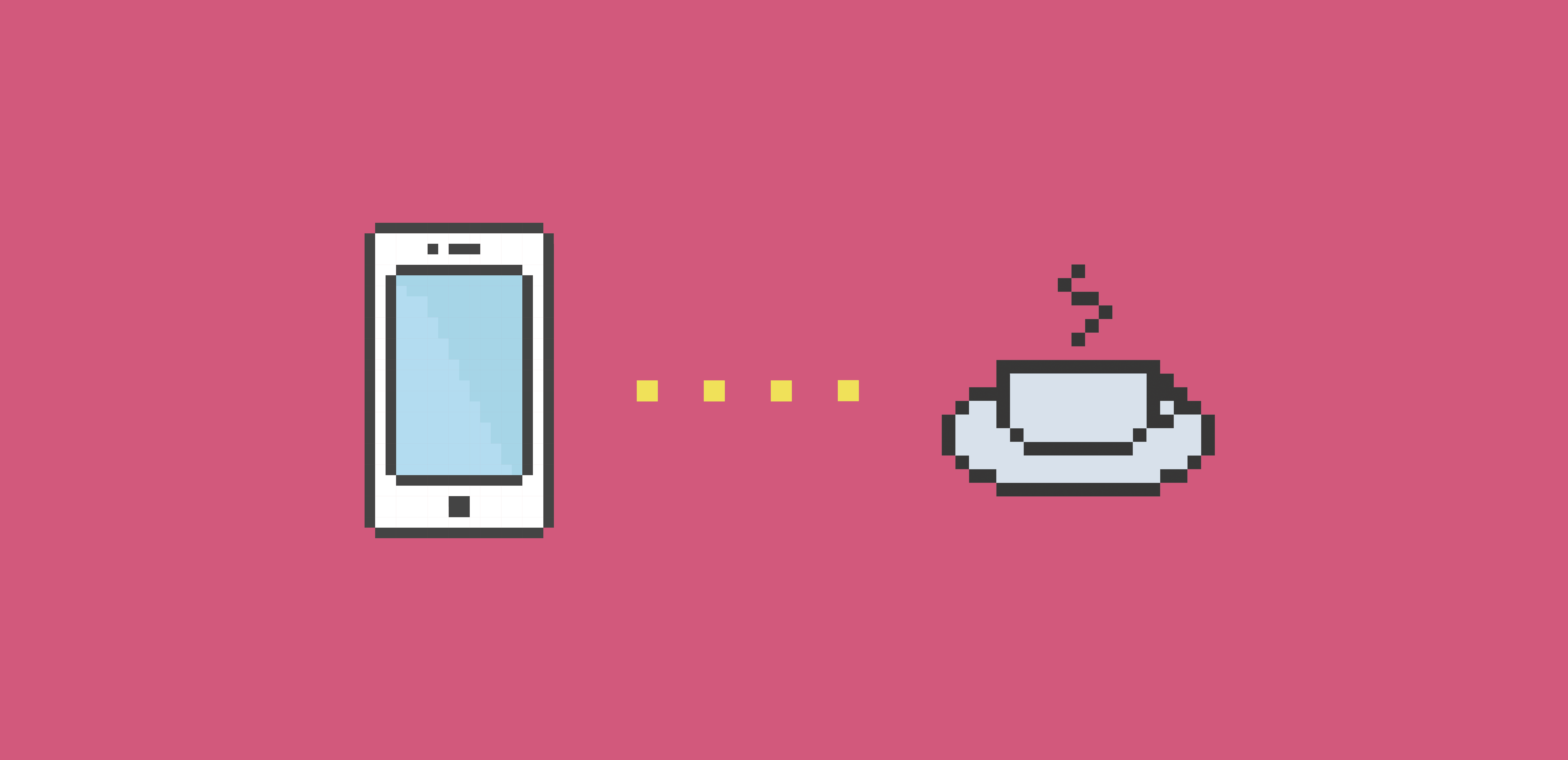Is this coffee-themed app the future of crowdfunding?
How Ko-fi translated a familiar social gesture into a powerful fundraising tool


A free daily email with the biggest news stories of the day – and the best features from TheWeek.com
You are now subscribed
Your newsletter sign-up was successful
One of the most underrated joys of being an adult with even the teensiest bit of disposable income to throw around is that thrilling moment when you're grabbing coffee with someone — whether it's a dear friend, a junior co-worker, a personal mentor, or whoever — and you get to whip out your wallet at the register and go: "Let me get this! … No, no, I insist."
It's the kind of chummy gesture that feels just as satisfying to give as it does to receive. It's a low-cost but high-value social ritual rooted in giving something not monetary but meaningful.
This warm social interaction is what's at the heart of Ko-fi, an emerging online payment service that allows you to "buy a cup of coffee" for people on the internet. Artists, bloggers, and digital entrepreneurs of all sorts can generate a little button to plug onto their personal webpages, directing friends and fans to a simple portal where they can pay $3-5 as a gesture of appreciation — the price of a cup of coffee. (Of course, the recipients can use the money on whatever they want. It doesn't actually have to be coffee.)
The Week
Escape your echo chamber. Get the facts behind the news, plus analysis from multiple perspectives.

Sign up for The Week's Free Newsletters
From our morning news briefing to a weekly Good News Newsletter, get the best of The Week delivered directly to your inbox.
From our morning news briefing to a weekly Good News Newsletter, get the best of The Week delivered directly to your inbox.
Here's an example:
//
(That's mine!)
Ko-fi translates a very natural in-real-life experience into an online setting, where it can get magnified by the seemingly endless internet masses and transform into a potentially lucrative source of funding for the "coffee" recipients. It's particularly useful for the kind of creatives who tend to amass huge followings online but have few avenues outside of advertisements and direct user fees to make an income. Think people like Instagram curators, new musicians, newsletter writers, and other DIY content makers.
A free daily email with the biggest news stories of the day – and the best features from TheWeek.com
"They've got the people who appreciate what they're doing," says Nigel Pickles, the founder and lead developer behind Ko-fi. "We just want to be a kind of facilitator in the relationship."
About 200,000 people have created Ko-fi pages since its founding in 2012, Pickles tells The Week, with the bulk of the growth occurring just last year thanks to a slew of new features they added to the site, including personalized URLs and expanded user profiles that show off their work. By the end of 2017, the website had processed some $2 million in coffee transactions, and Pickles says just the first three months of 2018 has seen over $1 million.
The concept's utter simplicity is exactly what makes it so effective. In a fairly saturated market for crowdfunding platforms — from the campaign-style sites like GoFundMe and Kickstarter to more subscription-like funding platforms like Patreon — it can feel hard to innovate. But Ko-fi isn't really trying to do something new. Rather, it's just trying to tell a better story.
"Just having the metaphor of coffee is less transactional. It's not just like, give me some money," Pickles says. "It also kind of validates small donations as well. You don't need to feel awkward about just giving $3. It kind of makes it okay to just give a bit of loose change."
Charities have been leveraging the power of microdonations for decades, says Makana Chock, a professor of communications at the Newhouse School at Syracuse University. Research shows that when you legitimize small amounts as being a totally acceptable and meaningful contribution to a cause, people are more willing to donate. Add that donor psychology to the familiar social custom of sharing a beverage — particularly coffee, which is itself highly symbolic among busy, sleep-deprived working folks who depend on it as a sort of life-sustaining elixir — and you suddenly have a story that moves people to dig out their credit cards.
"There is a trend to develop the technology, to have things that are more high-tech, more immersive," Chock says. "But at the same time, the ones that are successful are the ones that actually create a way of appealing to people's need for human interaction. … You can have something that's very high-tech, but if it doesn't have a story, if we don't emotionally respond to people in the story, we don't like it."
Ko-fi's concept isn't particularly novel, but it's just so charming, approachable, and in touch with how people actually, socially spend their money. Giving money to anyone, be it a friend, stranger, or organization, can feel like a taxing sacrifice, no matter how much money you have or the amount you choose to give. But while getting solicited for donations can trigger a defensive or otherwise negative response, buying a cool person a cup of coffee is a totally natural and uplifting experience.
"There's a long cultural tradition across a lot of different cultures of sharing bread and salt. You share food. You share water," Chock says. "We may also donate money, but money becomes a sale event. You pay people for things. You pay for actions. It has a different connotation attached to that. If you give someone something to eat or drink, it's a form of sharing. … There's a different emotional connection to that."
Kelly Gonsalves is a sex and culture writer exploring love, lust, identity, and feminism. Her work has appeared at Bustle, Cosmopolitan, Marie Claire, and more, and she previously worked as an associate editor for The Week. She's obsessed with badass ladies doing badass things, wellness movements, and very bad rom-coms.
